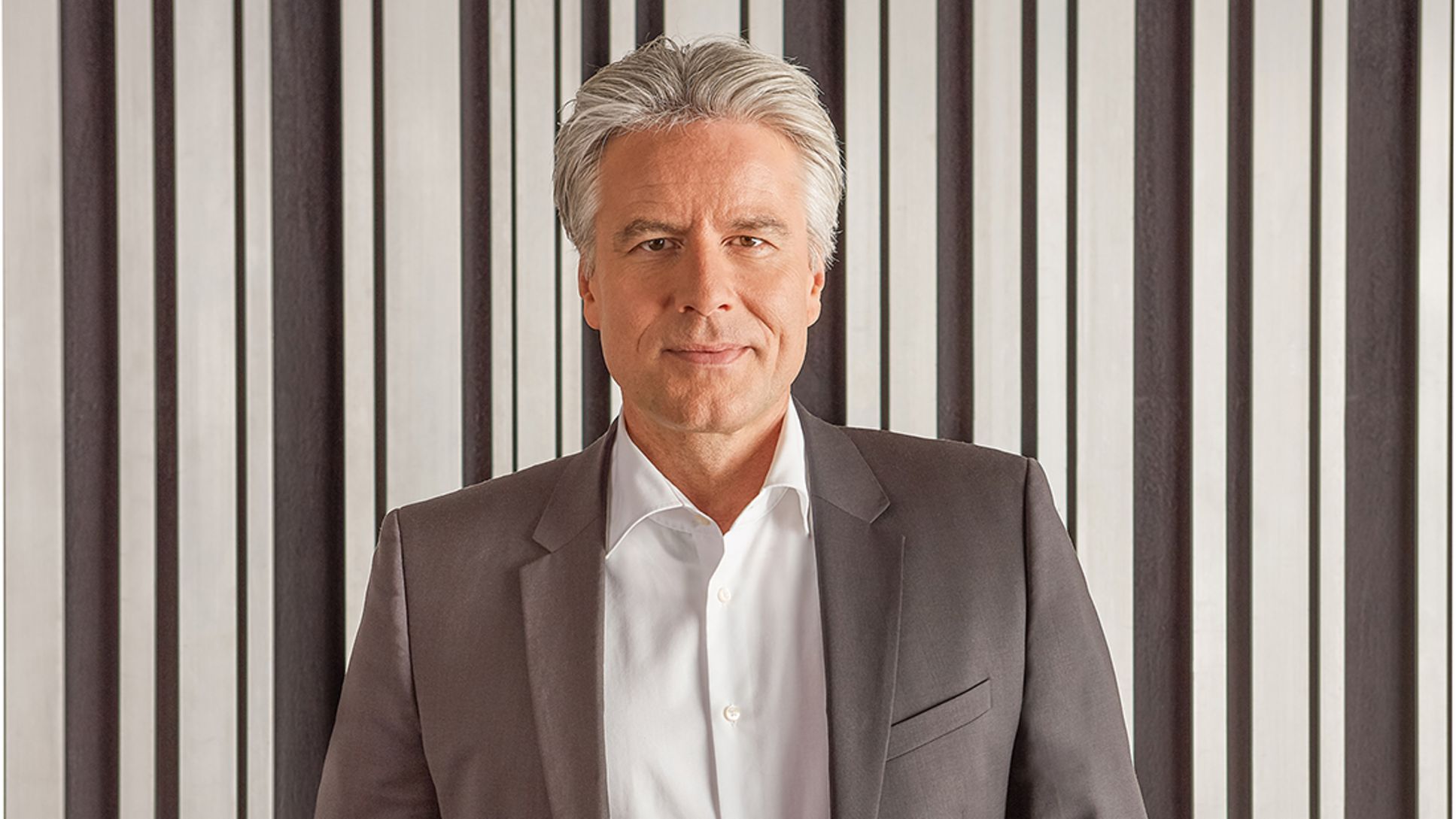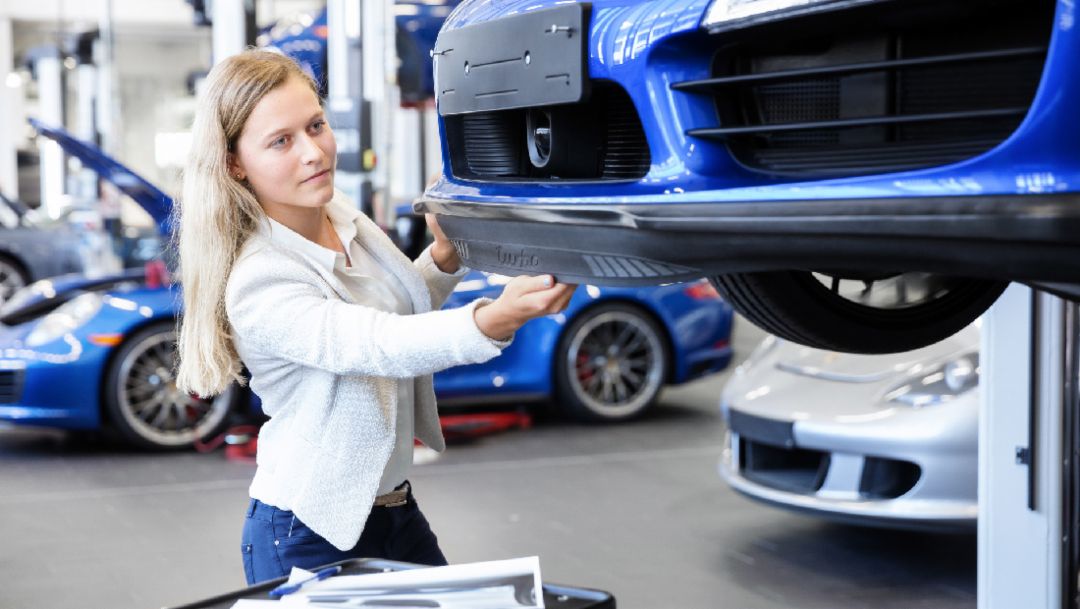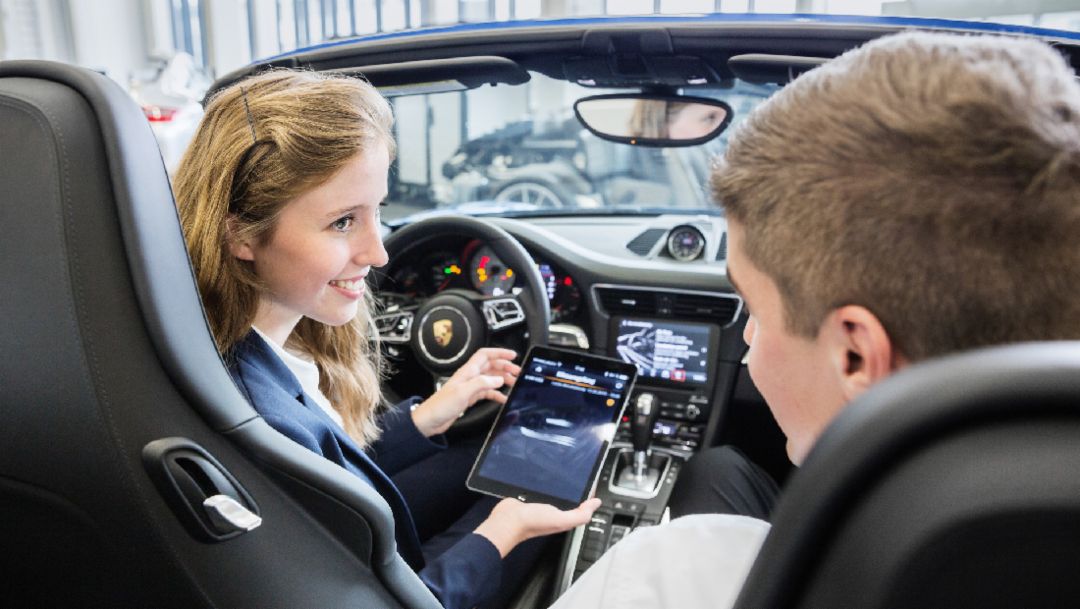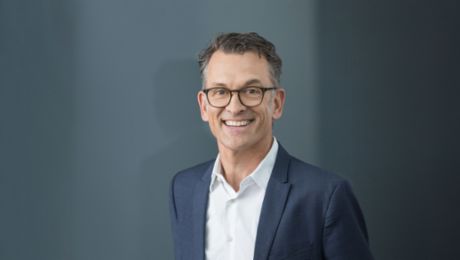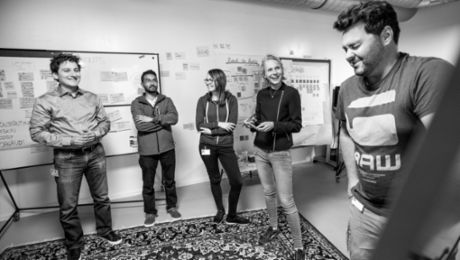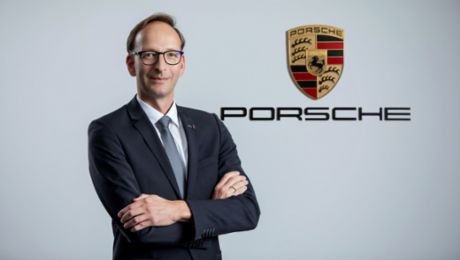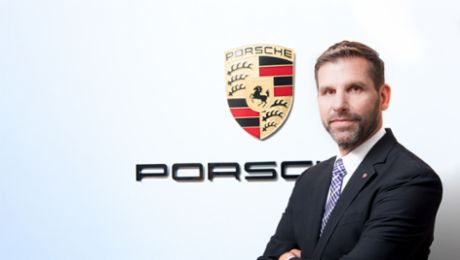Andreas Haffner, what, for you, characterises a good employee?
I value employees who don't blindly agree with everything I say and who stand by their convictions. Good decisions are founded upon open and pragmatic communication. I look for the expertise and the courage that enable an employee to stick to his or her professional conviction and stand up and say that such-and-such approach is not feasible.
How would you describe de facto leadership in the age of digitalisation?
More so than ever, leadership in times of change should offer guidance, provide employees with vision and ensure that everyone is kept on board. For example, for me that means picking up my smartphone where appropriate and keeping communication quick, straightforward and to the point. This is how I communicate with my employees, and I want them to feel that they can use the same approach when communicating with me. Having said that, I believe that face-to-face contact and communication are still very important.
Porsche is giving a second intake of 15 refugees from Afghanistan, Eritrea, Iran, Pakistan and Syria the opportunity to participate in an integration year, during which they will gain an insight into commercial training fields and specialist departments alongside their language courses. What have been your experiences of this programme to date?
The first cycle of the programme significantly exceeded our expectations. We are determined to assist refugees with the integration process, and were confident of the benefits of our programme. However, the fact that the participants in the first programme cycle all worked so hard and the group dynamics panned out so well exceeded our expectations. Two of the participants passed the aptitude tests for an apprenticeship straight away and will be trained as vehicle interior fitters and automotive mechatronics specialists with a focus on passenger car technology. A further two participants are currently completing our preparatory year and seven programme graduates are now working in our Production and Logistics departments.
In spite of this, you are not extending the programme and giving more refugees a similar chance. Why not?
First of all, it is important not to train people beyond the scope of the jobs market because that will only lead to disappointment. Quite apart from this, we wanted to create a comprehensive programme that opened up real and sustainable career prospects for the refugees – and that requires the appropriate capacities. When you consider that we take on 150 trainees and students from the Co-operative State University each year and, in addition, each year we accept 20 young women and men who by mutual agreement are ready for vocational training onto an apprenticeship via our preparatory year, then taking an additional 15 refugees on top of that through an integration programme poses a huge challenge.
You went into schools with the message “We don't believe that horses are just for girls. We don't believe that sportscars are just for boys. We don't believe in prejudices full stop.” What was your objective in doing this?
This formed part of our “Girls' Month” initiative. We actively approached various schools and led workshops in which we encouraged boys and in particular girls to look into jobs that didn't fall into the stereotypes for their gender and also encouraged them to focus on their individual strengths. Our objective was to motivate more girls to apply for typically “male” jobs. We carried out this initiative in co-operation with the Europäischen Akademie für Frauen in Politik und Wirtschaft e.V. (European academy for women in politics and business).
Porsche has made the promotion of equality for women a management objective. What does this mean in practice?
Haffner: We hold managers to account for ensuring that women experience equality in terms of promotion into management positions. If an area below management level is therefore made up of 20 per cent women, the next round of promotion must also include 20 per cent women. This creates equal opportunities between the genders. To increase the proportion of women we employ, we have greatly expanded our options for balancing career and family life, right up to job sharing in management positions. In addition, we are gradually filling up the pipeline – and that starts with training. Over the past three years, we have increased the proportion of young women on our technical/commercial training programme from six to 35 per cent (N.B. this figure applies for the training course starting in Sept. 2017). Among the graduates of the Baden-Württemberg Co-operative State University, the proportion of women hired by Porsche has to date been around 30 per cent. This figure now stands at 50 per cent.
Digitalisation in production and administrative areas brings with it a lot of change for employees. How do you intend to retain the Porsche corporate culture?
The ability to create something new while retaining traditional values has always been a hallmark of our corporate culture at Porsche. With this in mind, we made the development of our corporate culture a separate strategic field as part of our Strategy 2025. As a next step, we are set to work together with the employee representation to launch a major cultural campaign within the company. Our key objective is to prepare our employees for digitalisation. We will need to actively support our employees, offer study courses, seminars, mentors and sponsors and also make sure the managers are thoroughly ready for the change.
Won't Porsche need completely different employees who have a different mode of thinking, in particular for the digital production environment?
You're right, and this will pose a huge challenge. We are competing with other automotive manufacturers, suppliers and IT companies for people with these skills. At the same time, we want to make sure our existing workforce is thoroughly ready for the digital production environment. I want to see the potential inside each and every one of our employees nurtured to best effect, both through training and also through completely new and agile working methods. At the same time, it's important to reconcile new methods of thinking with old-school thinking. We have set up digital labs in Ludwigsburg and Berlin, and plans are also underway to establish locations in Silicon Valley, China and Israel. These labs will allow us to test out different ways of implementing digital technologies in our company.
Studying and working go hand in hand at Porsche. How does this work?
For many years, we have offered study places at the Baden-Württemberg Co-operative State University. This model offers an alternating cycle of three months' theoretical study at the university, followed by a practical placement within the Porsche Group. Upon completing their final exams, the graduates gain an internationally recognised Bachelor degree worth 210 ECTS points.
What does the dual course cover?
Students gain a well-founded base of engineering, business and interdisciplinary specialist knowledge. During the practical placements, they assist in various specialist areas within our national and international locations and independently take on project tasks with an academic bias. Over the three-year course, they are therefore given the opportunity to familiarise themselves with many different professional activities and also build up a network of contacts within the company.
Are overseas placements possible?
Overseas placements are definitely possible and indeed encouraged during the degree course. Students can undertake an overseas theoretical semester or a practical placement lasting for several months in our international subsidiaries.
When should prospective students apply?
The courses begin in the September of each year and last three years, with a four-week introductory placement before the start of the course. Fields of study include mechanical engineering, electrical engineering and information management. We select our trainees and Baden-Württemberg Co-operative State University students a year in advance and prospective applicants can apply from the end of July. In view of the large number of applications we receive, it is advisable for prospective applicants to submit their application documents as near to this date as they can.
What makes for a good application?
Haffner: We look for the overall package. Clear commitment to the field of study and enthusiasm for Porsche as a company come high up our list of priorities. Good grades at school are of course important – but they are not everything. We look for young people with passion and intellect. At the interview stage, we watch out in particular for a natural and authentic manner; ultimately we want to get to know the person behind the application.
How can applicants make themselves an attractive prospect?
We look for people with personality. Passionate employees who frequently think outside the box and go down unconventional paths are the lifeblood of Porsche as a company. Our vehicles are unique – because our employees are unique. Applicants should therefore look to demonstrate to us the areas of trade that fascinate them and tell us where their passion lies and why they would like to work for Porsche in particular. In addition, extra-curricular activities are always looked on favourably; they give an applicant bonus points.
Info
Interview first published in DIE WELT and WELT am Sonntag on February 4.
